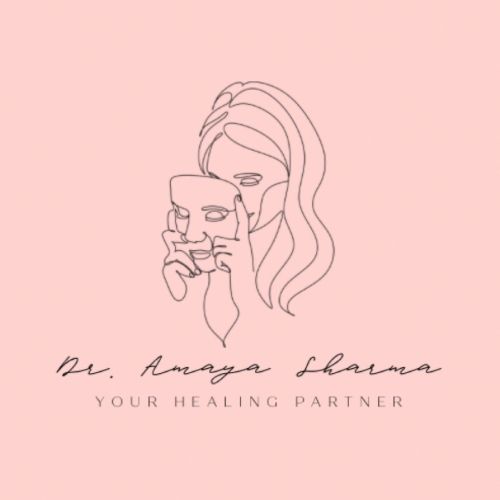WE ARE TRUSTED FOR
BEST IN CLASS ONLINE THERAPY CARE
No matter where you are located on the globe, we have made our therapies accessible. Take session from the comfort of your home/ office. Best level of quality assured.
CLIENT DOCTOR BONDING
No matter what you are feeling or going through, you have the best support possible. Dr. Amaya is very well known for her compassion and excellent communication with clients.
Treatment Specialties

Individual Therapy
Do you ever ask yourself “Why am I so stuck?”
Most individuals I see are looking for help on finding confidence, happiness and decreasing the control people and judgements have on them. I work with many who feel constantly doing for everyone else but dont feel reciprocated or good enough for themselves. If you don’t know where to start or how to make positive change happen, I am here to guide you. I am a strong believer in self awareness, self reflection and self acceptance. I help people heal past hurts/traumas, understand themselves , create a healthy relationship with self and promote a mindset to match. As a therapist, I am dedicated to providing a safe, transformative space for individuals to come in and explore what is keeping them stuck and helping them move past blocks and traumas in their life so that they can get to a happy and healthier place. Taking the first step to reach out for help can be challenging. I am here to make it as easy as possible and support you through that process.
Here are some common issues addressed in Individual therapy:
● Communication & conflict skills
● Recovering from betrayal or trust issues
● Confidence building
● Body image concerns
● Identifying your triggers and learning to cope with them
● Perfectionism and lack of acceptance
● Difficult family relationships
● Emotional regulation and anger management
● Relationship issues
● Trauma and loss
● Self-esteem Issues
● Creating a healthy relationship with self
● Emotional dependence
● Low motivation
● Creating boundaries with self and other
● Healing from painful relationships
● Work/life balance
● Purpose finding
● Life transitions: school, career, moving, parenting
● Depression
● Worry, stress, and anxiety
● Fears and insecurities
● Eating disorders
● Lifestyle management
No matter what you feel like, therapy is your answer. Let’s Team Up!

ANXIETY
You have a lot going on. You are a lot stressed either at your job or in your personal life – or both. There is a constant worry as to ‘what if’ things don’t fall accordingly, ‘what if you or your close ones get hurt or fall sick, ‘what if’ people don’t like you or even worse judge you and many more such ‘what ifs’. In order to keep up, you feel like you have to think about so many things at the same time and this spiral never ends.
● You assume the worst-case scenario
● You procrastinate because you’re worried about failing/ judgment
● You “just know” what everyone’s thinking – and it’s all negative about you
● You find yourself thinking about the “bad stuff”
● You always find something to worry about
Learn to live in the moment. Let’s Team Up!
Depression
Depression robs you of the simple and much-deserved feeling of happiness. It comes in various shapes and sizes, in varying degrees – and it’s all painful. Some people can’t get out of bed. Others can function like they always do, but things just feel cloudy for no apparent reason.
● Low self-esteem
● Break-up or divorce
● Financial stress
● Family conflict
● Relationship dissatisfaction or conflict
● Lack of motivation
● Crippling negativity
● Difficulty functioning
● Toxic people around you
● Loss of a loved one
● Chronic stress
● Easiness to anger
● Lack of engagement in hobbies
● Feeling guilt or burdensome
● Loneliness
● Feeling rejected
Regain your energy, your happiness, and your life. Let’s Team Up!


Relationship/ Couple Therapy
Our romantic relationships are often the center of our world. If you are struggling to understand each other, feel joy and satisfaction in your relationship, build harmony and get over relationship anxiety, couples therapy can be a great way to help explore how to communicate better, heal past hurts and get back on the same page in order to move forward.
directly in my work with couples
● Rebuilding trust
● Healthy conflict management
● Processing after an affair
● Parenting and co-parenting issues
● Emotion regulation
● Effective listening and communication skills
● Exploring sexual blocks and challenges
● Overcoming insecurities
● Balancing expectations
● Creating mutual understanding and respect
● Accepting your partner and letting go of anything holding you both back.
A new beginning with your partner? Let’s Team Up!
Premarital/ New Relationship Building Counseling
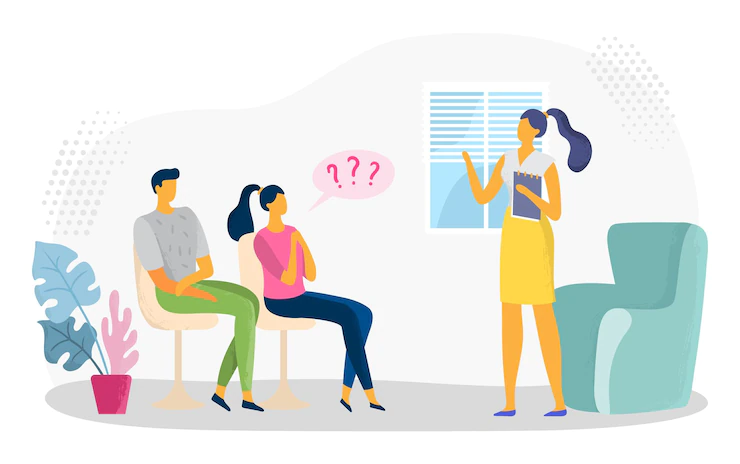
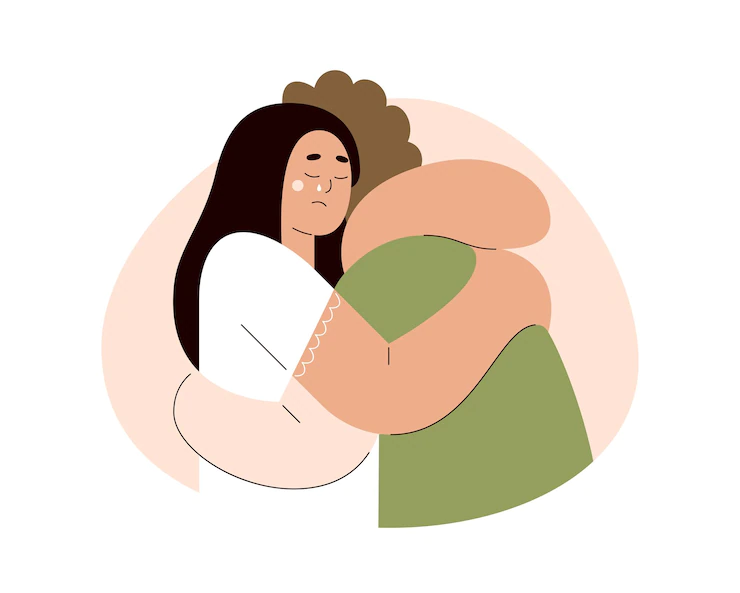
Grief & Loss Therapy
Moments of grief are the hardest. Loss or grief causes severe emotional damage. Getting emotional support and knowing how to cope with grief is very important for ensuring that the emotional distress doesn’t lead to depression or cause deeper psychological damage.
● Death of a parent, spouse, or close friend
● Death of a baby, through miscarriage or other causes
● Death of a pet
● The end of an important relationship (Breakup)
● Job loss, injury, or other traumatic changes in lifestyle
We are here to help you through your darkest moments. Let’s Team Up!
Trauma Therapy
Trauma causes emotional, social and behavioral changes. PTSD (Post traumatic stress disorder) typically begins as a result of a traumatic event. That event may involve a real or perceived threat of injury or death, physical, emotional or sexual assault or abuse and can happen at any age. Post traumatic stress manifests in a variety of ways: feeling a heightened sense of fear and anxiety, trouble concentrating, avoiding people, places, or situations that remind you of the traumatic event, reexperiencing the trauma via nightmares and flashbacks and being in near-constant fight-or-flight mode, to name a few. These symptoms may last days, weeks, months, or years following a traumatic experience. Processing the emotions tied to these memories requires a great deal of support and guidance. The good news is that we specialize in trauma therapy and are here to
help your healing process.
Trauma can look like
● Childhood abuse or neglect
● Bullying
● Domestic Violence
● Relationship distress or Break up
● Disasters (accidents, kidnapping or natural disaster)
● Death or loss of a loved one.
● Body Shaming
● Medical Trauma (traumatic injury or surgery)
● Emotional, physical or sexual abuse
● Emotional or Physical neglect
● Divorce
● Violence against your mother/ father
● Mental illness
“Trauma might have happened to you, but don’t let it define you. Let’s Team UP!
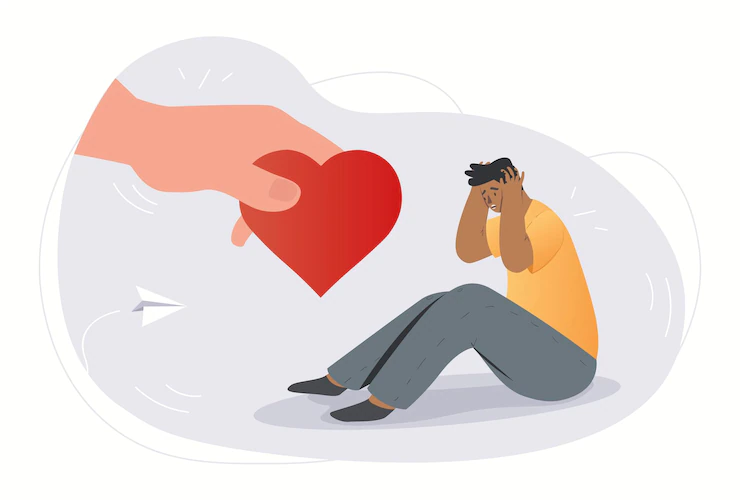
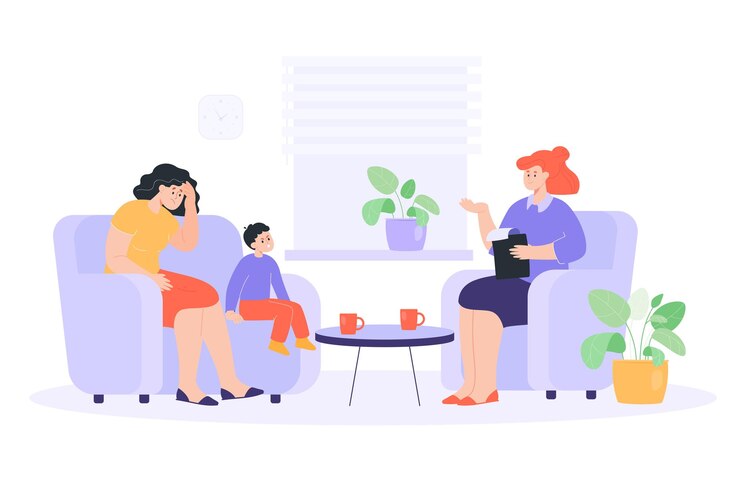
Child and Teenage Therapy
them perform better in their personal life and school. We guide teens and children healthy coping skills to help them deal with a variety of issues. We believe that family plays a huge role in a teen’s development and special attention is given to the same in the form of “support therapy.” We also provide a private, non judgemental “safe space” where they can communicate about their issues openly without parent’s interference.
Below are some areas, we help children and teens with
● Behavior issues
● Improving Parent- child relationship
● Social skill development
● Self image and confidence building
● Emotional issues
● Academic issues
● Anger issues
● Teenage Depression and Anxiety
● Self esteem building
● Eating disorders
● Impulsivity and attention issues
● Childhood trauma/ neglect/ bullying
● Relationship issues
● Substance use
● Mobile and gaming addictions
No matter what you’re going through, there’s help. Let’s Team Up!
Body Image issues
Negative body image can lead to emotional issues such as reduced self-esteem and confidence. It can also cause mental health issues such as body dysmorphia and eating disorders. Therapy helps you address body image concerns. In therapy, a person may explore all the factors that contributed to their current attitudes. An individual may not realize how much of their self-perception comes from negative comments by others. They may have experienced bullying from peers or family and blamed
themselves for it. Therapy can help a person rebuild a healthy self-image. An important part of improving body image is practicing self-compassion. People often blame themselves for not matching people’s idea of them. They believe if they spent more effort working out, applying lotions, buying better clothes, etc.,
they would look how they “should.” If you are struggling with body image issues, there are many ways to get the love and support you deserve.
You do not have to face these problems alone. Let’s Team Up!
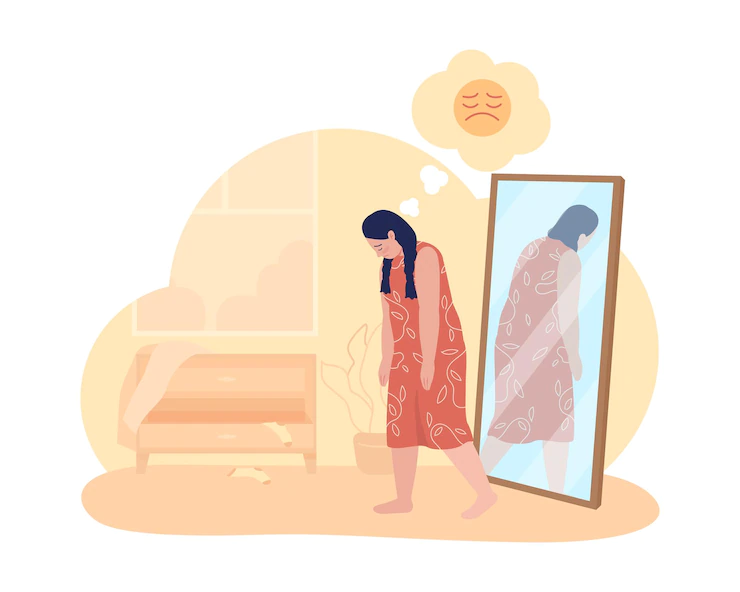
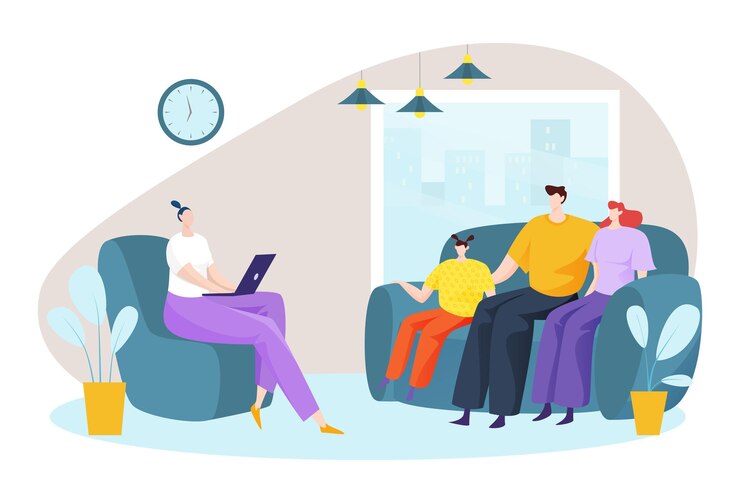
Parenting Therapy
Parenting is not easy. As a parent, you might experience moments of stress, doubt, anxiety and overwhelm. These emotions might make you feel helpless when you face any resistance, argument or stubbornness from your child. For many parents, it triggers unhealthy reactions like anger, shouting or hitting their kids which they later repent. In some cases, there may be a genuine gap in emotional needs and understanding between the parent and child that can result in misunderstandings, lack of healthy communication and difficulty creating a healthy bond.
Children are also affected with distracting social media and a culture that encourages constant comparison which can impact their self-esteem and stay focused at studies. Mental health issues can make it difficult to help your children to become happy, well adjusted, and responsible adults.
Therapy can help you
● Develop a healthy Parent-Child Relationship
● Learn to deal with your emotions as a parent
● Learn conflict management within parents
● Learn effective Single Parenting
● Help in Child Growth and Development
● Become a friend with your child
Parenting can be overwhelming. Let’s ease it for you. Let’s Team Up!
Abuse (Emotional, Physical, Sexual)
Abuse can come in many forms including emotional, verbal, physical and sexual. Abuse can leave emotional wounds that are harder to heal than bodily injuries. Survivors of abuse may have intense, negative feelings long after the abuse has ended. Anxiety, flashbacks, and trust issues are common in people who have
experienced abuse. Abuse can impact a person’s ability to form relationships and find happiness. The effects of abuse do not have to be permanent. The right therapy can help abuse survivors
overcome challenges and address symptoms. Therapy can also help those who engage in abuse to stop harmful behaviors, though the individual must truly wish to change.
Abuse can look like
● Physical abuse
● Sexual abuse
● Emotional/ psychological abuse
● Domestic abuse
● Financial abuse
● Child abuse/ Emotional neglect
● Narcissistic abuse
● Self abuse
There can be a healthy life after abuse. Let’s Team Up!

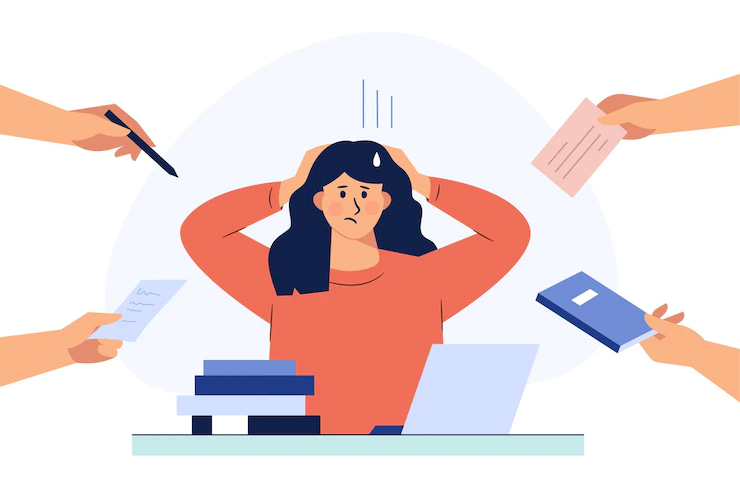
Work related issues/ Workplace Counseling
When you enjoy your job, it can provide happiness and fulfillment. But, when work is causing you stress and unhappiness, it can take over your life. A little pressure at work can be motivating, it can help you perform better and teach you ways of overcoming obstacles that may occur. But, when this pressure becomes
excessive and the demands of your job are too much, it can lead to work-related stress. It doesn’t matter how old you are, your gender, or the industry you’re in – sometimes things can become difficult. If you think you are suffering from work-related stress, it is important you seek help. It’s easy to think the feeling will pass or that everyone feels that way, but pushing it aside and not dealing with it will only make you feel worse. When you spend so much time at work, it should generally make you feel good. You should be happy and feel proud of what you do. Feeling stressed for a prolonged period of time can greatly affect your life, physically and mentally. In fact, work-related stress can lead to issues like anxiety, low self-esteem, low self-confidence, Lack of motivation and concentration, procrastination, sleep disturbance, mood fluctuations, anger and irritability, feeling of hopelessness and depression. It can impact your social life and you may pick up bad habits as a way of coping, such as drinking, smoking, and over or undereating.
Counseling aims to get to the cause of your work-related stress. When you’re in the midst of a situation, it can be hard to think clearly. Talking to a professional in a private, non-judgmental setting, about the difficulties you’re experiencing can help you understand what may be causing the stress and the steps you can take to overcome it.
Some work stressors are
● Uncomfortable work space
● Workspace harassment/ bullying
● Unrealistic deadlines
● Difficult boss
● Uncooperative/ Unhealthy team environment
● Unsatisfying work
● No recognition
● Feeling inadequate or undervalued
● Recent switch in job or position
● Office politics
Not everything that weighs you down is yours to carry. Let’s Team Up!
Self Development
Sometimes it’s not one identifiable issue that brings people to therapy. Some people use therapy to support and assist them through general self-development. Self-development is about striving to improve the self. Self-development can be about anything. It can have specific aims and objectives or self-development can be more centered around general self-improvement, self-confidence and well-being. There are many reasons people seek self-improvement. Sometimes, people want to ‘feel better’ or be more engaged with their lives and relationships. Some people need self-development for help with career or family matters, when they feel stuck and unmotivated or when they feel they are not reaching their full potential. Some people need self-development to prepare for an interview, a presentation at work or other big life event. Self-development
counseling can help identify and improve any areas of life that might need attention. In self development therapy, we try to understand the areas you wish to improve and we help you consider the reasons you might be struggling in certain areas of
your life. Therapy helps remove obstacles that hold you back. We coach and motivate you through whatever your personal goals may be. We keep a close eye on your progress and help you achieve success along the way.
These are some areas we work at
● Self acceptance, self care and compassion
● Inferiority complex
● Struggle with self-doubt, non acceptance, confusion or guilt
● Depleted/low self-esteem, mental strength, confidence
● Creating clarity about ideal career, path, potential
● Disruptive emotional balance, mood, impulse, negative thoughts or behavior
● Emotional dependence
● Casual/risk taking habits, actions or decisions
● Feeling helpless, dependent, manipulated or afraid
● Insecurities
● Relationship struggles or anxiety
● Teaching better self-understanding, trusting relationship with self
● Recognize your strengths
● Becoming self-driven and motivated
● Handling uncertainty
● Setting healthy boundaries
It’s never too late to work on yourself. Let’s Team Up!

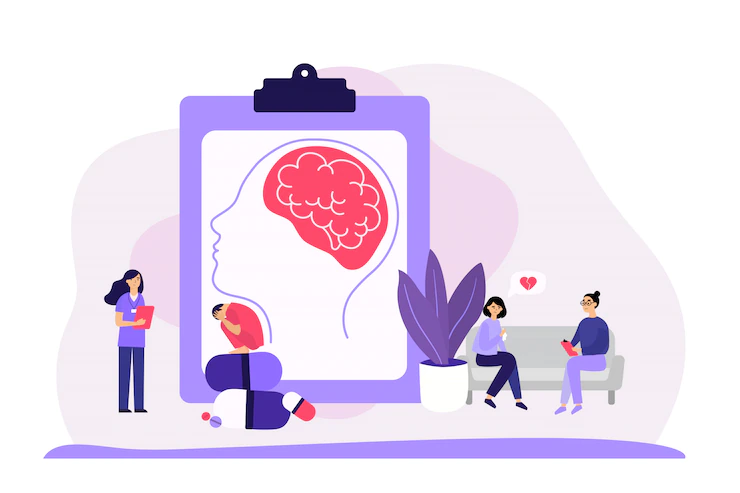
Mental Health Therapy
● Borderline personality disorder (BPD) symptoms can include a pattern of unstable relationships, frequent mood swings, periods of stress-related paranoia or feeling spaced out from your reality, and fear of real or imagined abandonment. You may be at risk of BPD if you have a family member with BPD or grew up in an unstable, abusive, or neglectful environment.
● Bipolar disorder is marked by extreme shifts in mood which can include trouble managing everyday life tasks at school or work, and difficulty maintaining relationships. Symptoms can include extremely elevated moods followed by episodes of depression which can last for several days or weeks. If you are looking to stabilize your mood and relationships, we are here to assist you.
● Suicide Ideation: If you are preoccupied with the idea of suicide or think about what life would be like if you weren’t around, you may be experiencing suicidal ideation. Signs may include vocalizing that you wish you weren’t alive, avoiding social contact, researching methods of suicide, being especially risky in all areas of your life, showing signs of anxiety or getting upset over minor things. If your life is in danger now, call 1800-599-0019 and seek help immediately.
● Obsessive compulsive disorder: Obsessive-compulsive disorder (OCD) features a pattern of unwanted thoughts and fears (obsessions) that lead you to do repetitive behaviors (compulsions). These obsessions and compulsions interfere with daily activities and cause significant distress.
● Psychosis: Psychosis is when people lose some contact with reality. This might involve seeing or hearing things that other people cannot see or hear (hallucinations) and believing things that are not actually true (delusions).
Other: One does not need to fit into the above listed mental health concerns. You might be facing a combination of a few or an altogether different concern of your own. Whatever your concern is, we will collaboratively work on your issue.
We create a safe space for you to express. Let’s Team Up!
Other:
We create a safe space for you to express. Let’s Team Up!
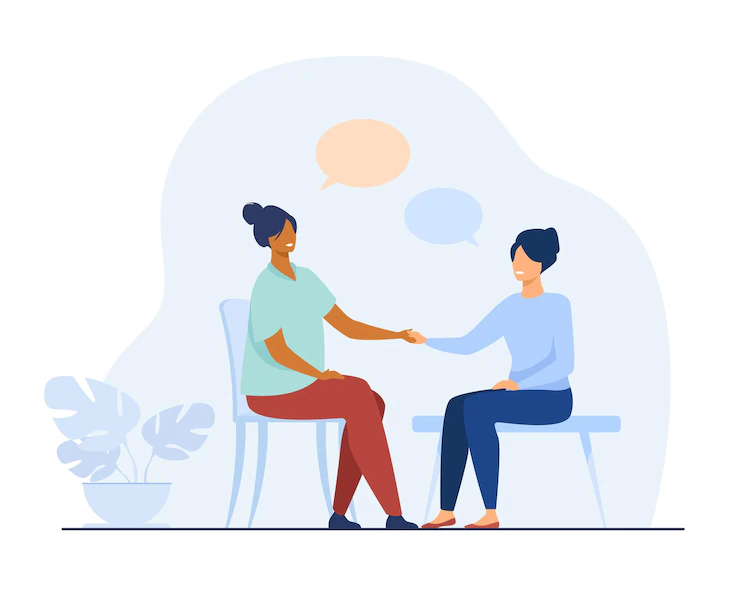
Common Questions
How does therapy help?
Therapy can help you learn about what you’re feeling, why you might be feeling it, and how to cope.
Therapy also offers a safe place to talk and get help through life challenges such as breakups, grief,
relationship or parenting difficulties, emotional trauma, work stress or family struggles and several mental
health issues. It helps you learn healthy behaviour, whether it’s improving relationships, expressing
emotions better, doing better at work or school, or thinking more positively.
Therapeutic support can be invaluable in helping you feel validated and understood.
Can I go to therapy just to talk?
Absolutely. You don’t need to have a mental illness to seek therapy. Therapy isn’t just for people who are
in the middle of a major life crisis. Talking to a therapist can help you sort your feelings and release
pent-up emotions that you haven’t felt free to share with anyone else.
How do I know I need therapy?
How many sessions will I need?
Therapy can last anywhere from one session to 5-7 sessions. It all depends on what you want and need.
How long is each Session?
An ideal therapy session lasts 45 to 60 minutes depending on the conversation and treatment.
What is the gap between two therapy sessions?
Each therapy session generally requires a gap of 7 days. One session per week is an ideal therapy
programme.
What happens in the first therapy session?
Your first session will probably involve your therapist asking you a lot of questions about you, how you
cope, and your symptoms (it’s basically an interview). Diagnosis and treatment planning is done. You may
also chat about goals for therapy, expectations, and more.
Is What We Discuss In Sessions Confidential?
Therapy is absolutely confidential. You therapist is required to maintain confidentiality about everything
said in sessions between the two of you. Confidentiality is also a key part of psychology’s code of ethics.
This means your therapist understands from the very beginning that in order for you to feel comfortable
sharing openly with them, you need to know your information is safe.
How can I tell if the therapy is working?
It’s crucial that you feel you’re progressing and growing throughout the process. Here are some
common ways to tell if therapy is working:
● You feel comfortable talking about your feelings with your therapist.
● Your therapist maintains appropriate boundaries with you (they don’t try to be your friend or tell
you what to do).
● You are made well aware of the therapy process, you know your goals and you’re making some
positive movement towards achieving them.
● You feel that your therapist really listens to your concerns.
● Your privacy is respected.
● You generally feel that you are functioning better in life.
● Your self-esteem is improving.
● There is a constant support from your therapist throughout your healing journey.
Is Online Therapy as Effective as In-Person Therapy?
Yes. Research shows that online therapy is just as effective as in-person therapy. There are
circumstances where online therapy may even be the best option. It is convenient and saves time. You
can take therapy from the ease and comfort of you home or office. You save the time to travel to a
therapist’s office, and the fact that your therapy will not take any additional time out of your day is
appealing. Some people have difficulty leaving the house because of the mental health issues they face
but need professional support, while others have to travel for work or need to stay home for child care.
Online therapy is a preferred option for them too. The quality of therapy remains the same in online
therapy.
What Is The Cost Of Therapy?
The fee for 30 minute therapy session is INR1000, for 45 minute session is INR1500 and for 60 minute session is INR2000 respectively.
How Do I Schedule An Appointment?
To schedule your appointment with us, you can WhatsApp us or call us at
+91-636-772-9993 or go to the Book An Appointment
